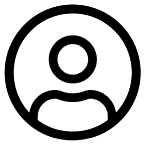Vital Traction

Ever thought about the opposite of distraction? Kinda obvious really: traction.
Sure, it sounds like something your high school drama teacher might say, but the way we form words often offers clues to betterment.
If you’re constantly distracted, you’re lacking direction. Careening without purchase.
Studies have been done into how much data we consume. On average, each year between 1980-2008, we consumed 5.4% more data than the consecutive year.
Back in 2008, it was estimated that each of us processed around 130GB of data per day. Comparatively, 500 years ago, a highly educated person would process 74GB across their entire lifetime.
So many hands after our time. Advertisers who want our pounds. Friends who want to share memes...
Diminishing Returns
With more boxsets to binge, reels to relish and newsletters to gnaw, it’s never been more important for us to dial in our attention on what matters and cast aside that which doesn’t.
Even what we consume is being altered to suit our shifting habits. The average shot length of films has at least halved between the 1930s and the 200s – with some evidence the length may now be a quarter of what it used to be.
We inundate ourselves throughout the day with a near-infinite amount of input. Where does it all go?
Silence Is Golden
The reason why people say they have their best thoughts in the shower is because it’s one of the last places we aren’t switched on.
It’s a rare daily break in our routine that allows everything we ingest to be digested.
We have infinite worlds in the palm of our hands. Because we can consume, we do. But should we?
There’s too little quiet in modern life to process. We prefer the company of others’ minds to our own.
Podcasts and videos on double speed. Books parsed into 15-minute bites because the sequel’s beckoning. The next recommendation might be the greatest thing ever!
It never is. But it could be.
We’re in such a constant state of FOMO that we never actually get in.
Innie or Outie?
The average attention span has dropped from around 150 seconds in 2004… to 47 seconds in 2017.
We’re bursting with ideas but we don’t give ourselves the time to listen. We prioritise consumption over consideration and creation, simply, because it’s easier to do so.
The most productive folks of yesteryear had no choice but to be bored. They sat with the emotion (or lack of) and plotted, planned, thought, created and… did.
Yuval Noah Harari says he doesn’t think "humanity will survive unless we have more boredom." We can overconsume information just as we overconsume food. Only, there’s no equivalent of a bellyache to indicate you’ve overindulged.
We point fingers at the media and claim it’s leading us astray. However true this is, we can’t forget that we’re adults with agency. We make our own choices. The direction of our lives is always mostly in our control.
Turn On, Tune In, Drop Out
In closing, the beckoning sirens on the rocks are avoidable.
When questioning what we’re doing, what we want to do, or where we’re aiming, the best accelerant is time void of distraction.
Boredom is something to be cultivated. It’s a necessary lull. It’s the intermission at the show. The opportunity to stretch your legs and refocus.
We need more quietude to allow what we think to percolate, transform and emerge.
We need more traction.




Leave a comment